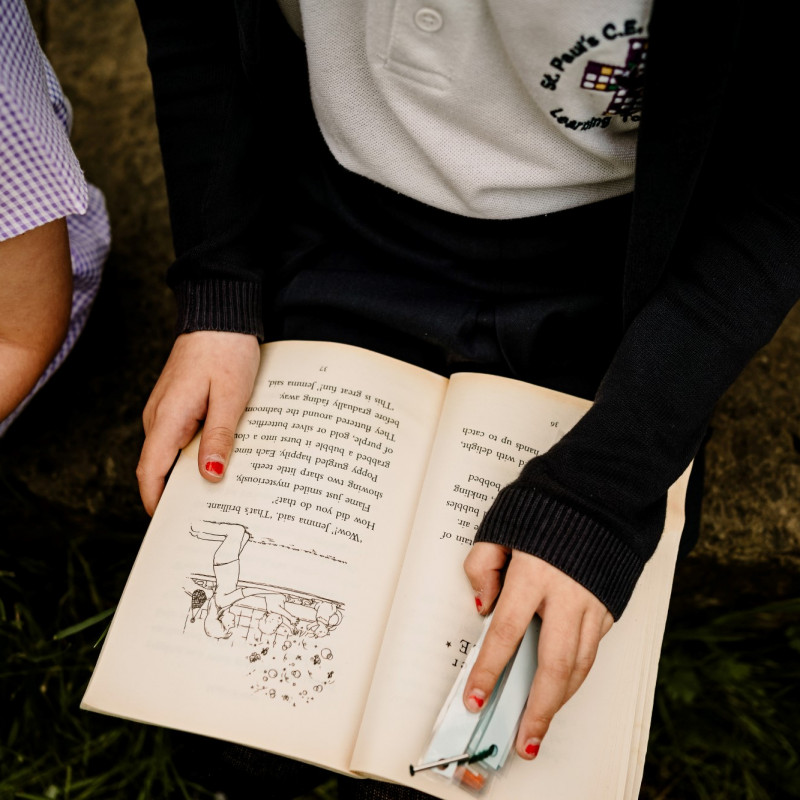|
Value
|
How We Promote It
|
|
Democracy
Links to school Christian values:
Respect Community Honesty
UN CRC Article 12: Children have the right to say what they think should happen, when adults are making decisions that affect them, and to have their opinions taken into account.
|
- We encourage volunteerism in and out of school. This includes things like play leaders, ICT support, lunch helpers, and raising money for local and national charities.
- Children take part in Bridge Builder projects where they work together to make key decisions about the school and the way in which we live at St Paul’s.
- The beginnings of democracy are taught through historical research of the Ancient Greece civilisation.
- Democracy is also promoted through additional PSHE lessons and worship.
- Children are taught about the United Nations Convention on the Rights of the Child and learn to respect their rights and the rights of others.
|
|
The rule of law
Links to school values:
Respect Determination Honesty
UN CRC Article 19: Governments should ensure that children are properly cared for, and protect them from violence, abuse and neglect by their parents, or anyone else who looks after them.
|
- We have high expectations about pupil conduct and this is reflected in our Behaviour Policy. There are rewards for exhibiting good and caring behaviour and consistent demonstration of our values is recognised through such things as passport stamps and ‘Star of the Week’.
- Through our school worships, circle time and PSHE children are taught how to earn trust and respect and are supported to develop a strong sense of morality; knowing right from wrong and doing the right thing even when it’s difficult.
- The local police officer / PCSO visit the school to talk to the children and explain about their role in society.
- Children are taught about the United Nations Convention on the Rights of the Child and learn to respect their rights and the rights of others.
|
|
Individual liberty
Links to school values:
Respect Community
UN CRC Article 31: All children have a right to relax and play, and to join in a wide range of activities.
UN CRC Article 15: Children have the right to meet together and to join groups and organisations, as long as this does not stop other people from enjoying their rights.
|
- Children are taught about the United Nations Convention on the Rights of the Child and learn to respect their rights and the rights of others.
- Through our school values and PSHE, children are taught about personal responsibility, choices, ambition and aspiration. They are encouraged to take opportunities to follow their interests in art, music, sport etc.
- Through questionnaire expressed views on what kind of extra- curricular clubs children wanted.
- Children are taught how to keep themselves safe, including on-line. This is done through computing lessons, assemblies and outside organisations such as the NSPCC, as well as through the PSHE curriculum.
|
|
Mutual respect
Links to school values: Respect Community Love Forgiveness
UN CRC Article 2: The Convention applies to everyone whatever their race, religion, abilities, whatever they think or say and whatever type of family they come from.
UN CRC Article 30: Children have a right to learn and use the language and customs of their families, whether these are shared by the majority of people in the country or not.
|
- We have high expectations about pupil conduct and this is reflected in our Behaviour Policy and Single Equality Policy.
- Children are taught about the United Nations Convention on the Rights of the Child and learn to respect their rights and the rights of others.
- Through our school’s Christian values, children are taught to respect each other, to be cooperative and collaborative, be supportive and to look for similarities while being understanding of differences.
- Mutual respect is also promoted through additional PSHE lessons, worship, and Rainbow Days.
- Children are taught about the United Nations Convention on the Rights of the Child and learn to respect their rights and the rights of others.
|
|
Tolerance of different faiths and beliefs
Links to school values:
Respect Love Courage Community
UN CRC Article 14: Children have the right to think and believe what they want, and to practise their religion, as long as they are not stopping other people from enjoying their rights. Parents should guide their children on these matters.
|
- We have high expectations about pupil conduct and this is reflected in our Behaviour Policy and Equality, Diversity and Cohesion Policy.
- Tolerance of different faiths and beliefs is promoted through the Syllabus for Religious Education. Children learn about different religions, their beliefs, places of worship and festivals. The children’s work on this subject or whole school learning in worship is often displayed in the classrooms or around the school.
- This is supplemented by worships (class and whole school), which also mark and celebrate significant religious festivals such as Ramadan and Diwali.
- Visits are made by local religious leaders and children have the opportunity to visit places of worship.
Children are taught about the United Nations Convention on the Rights of the Child and learn to respect their rights and the rights of others.
|

